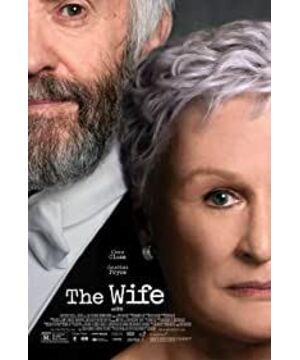More than a hundred years ago, the country girl Sidone Gabriel Colette fell in love with the famous Parisian writer Willie. Although the man is decades older than her and the statement is not very good, she still chooses to offer her best youth. Time has proved that she underestimated herself and looked up to the other party.
Willie, who sang every night, quickly put the family into the predicament of making ends meet. In order to alleviate the financial difficulties, his wife Colette began to act as Willie's article proofreader. Soon, she not only proofread, but also revised, and finally created her own. Willie discovered Colette's brilliance, and her uniquely female perspective was rather scarce in the literary world at the time.
With Willie merely proofreading, adding the then-popular lace, Colette became a true writer. As a result, "Crotina" written by Colette became an instant hit, and paper was expensive in Luoyang. Novels were written one after another, and each one sold out. But the more successful they were, the more rigid the relationship became. Finally, Colette could no longer bear his own efforts and could not sign his name, and the marriage between the two came to an end.
After her marriage, Colette returned to writing, and in 1945 she was unanimously elected as a jury for the Goncourt Prize for Literature. When she died, the French government held a state funeral for her. Juliava, a female writer, commented on her, "From beginning to end, her works are escaping from love relationships, breaking free from married life, and pursuing an eternal realm." It is not uncommon in history for a wife to act as a shadow writer for her husband.
A recent Oscar hit film once again uses this as a story, telling the fact that gender actually urges marriage in marriage, and the tragic life of characters under the prejudice of the times. The Wife,
Definitely one of the most unmissable female films of the last year, differentiated from the so-called "big heroine", gender-correct characterization. The heroine in "The Good Wife" happens to be the wife of most of the male protagonists and female protagonists in life. She is forbearance, restraint, and rationality. She is the stabilizer of the family and the reassurance of the family.
In the film, she is also a booster for her husband's career. The first scene of the film looks peaceful, but in fact it is undercurrent. The sweet words of wife Joan and husband Joe at the head of the bed will gradually be overwhelmed by arguments and stimuli that can't be reconciled.
A phone call wakes up the two in their sleep. Joe is told that he has won the Nobel Prize for Literature. The excited and incoherent Joe can coherently ask the other party to wait and announce later, because he needs time for his wife Joan to be with him on the second plane. Listen with your ears. This behavior made the officials on the phone couldn't help but make fun of them. The audience thought it was the warmth of love between husband and wife, but it was actually just a crack in the gap between the two marriages.
It is easy for the audience to predict the truth and ending quickly through the clues of the film. This is not the weakness of "The Wife", but has become its armor. Narratively, "The Good Wife" reveals the truth bit by bit through a memoir narrative. His wife Joan used to be Joe's college student.
Joe's ex-wife was rich and powerful, and Joe cheated on Joan after the two gave birth to their first child. Joe lost his Ivy League job and started writing novels for a living. But talent is mediocre, mediocre. The more talented Joan began to revise it and finally wrote it directly.
The first novel they collaborated on was a big hit, and their situation turned around. Their marriage, life, and career are intertwined with each other, and they are constantly in chaos. Later, Joan became a writer and Joe became a proofreader. But in the end, her husband Joe won the Nobel Prize for Literature, and Joan is just a "good wife" that her husband doesn't write about.
The cruelty of "The Wife" does not come from memory, it just happens to come from the highlight of Stockholm's acceptance of the award. The closer they get to receiving the award, the closer their marriage is to breaking down. After decades of marriage, Joan has long been accustomed to self-deception, but the heavy ceremony of the Nobel Prize and the attention of the world have gradually turned her unwillingness into anger and humiliation. The truth is too cruel. The husband of a great writer is just an unrestrained mediocrity. When he sees one person in love with the other, he uses the old-fashioned poem to write an inscription on the walnut;
The paradox is that the first work they collaborated on was called "Walnut", and the walnut was their love token and the women who were related to their husbands. This is their marriage, sweetness is always accompanied by lies, and warmth is filled with shame and impurities that cannot be ignored. Writing, as a way to continue their marriage, was both medicine and poison.
On the surface, "The Good Wife" says that the wife acts as a shadow writer to help her husband become a "scam", but what he talks about is actually the marriage relationship between men and women. The climax of the film is naturally the main event accepting the award. The husband on stage burst into tears, his heart was complicated, and he kept thanking his wife for her efforts. "My inspiration, my conscience, my soul, my only love".
Everyone in the audience sighed at the perfect combination of talent and beauty. But only they themselves know the truth and the tricks of fate. All good things can't stand pondering, and everything that seems perfect can't stand picky. The heart-piercing thanks are your honey but her arsenic.
Finally, Joan broke out... "The Good Wife" attributed the end of the relationship between the two and the frustration of marriage to the era of faint power.
The female poet who appeared in the film woke up the dreamer with one sentence, "The times will not let female writers come forward." In the editorial department, all the commentators are men, and Joan can only be responsible for serving tea and pouring water.
So, taking advantage of Joe's only fame and gender advantage is the best way for Joan to fulfill his literary dreams. The gender discrimination of the times is the root cause of the abnormal marriage between the two. If the times allowed women to come forward, if the times affirmed that men are in the lead, the tragedy would not be so, and their marriages did not need to be surrounded by lies all the time. In the end, even Joe himself was in a trance, "I don't know which ones you're telling the truth and which ones are lies." In fact, Joan couldn't tell her husband's sincerity and lies. When the foundation of true love is occupied by lies, it will inevitably be disintegrated.
This is the tragedy of gender, the shackles of the times. The script and structure of "The Good Wife" are intriguing, and the face is enough to attract attention. The whole process of receiving the Nobel Prize is displayed one by one.
Rinko was cold to the bone, casting glory into the shadows, illuminating corruption and filth.
However, don't take "The Good Wife" as a film that expresses feminism. The final ending of the film is the rationalized writing of real feminism. On the plane, the flight attendant continued to praise the two of them for their love. Joan laughed without saying a word, then half threatened the biographer who guessed the truth, and finally revealed the truth to his son and daughter. For marriage, I can choose not to forgive, but I will never allow others to make irresponsible remarks, so rational, firm, decisive, a good wife and good mother, but that's all. It is worth mentioning that Glenn Close, the old actor who plays his wife in the film, will use this role to once again hit the Oscar queen crown. This time, she has a greater chance of winning. She can win the queen with this film. Excited inside and out.
In addition, the young actress who plays Joan's youth in the film is Glenn Close's biological daughter.
View more about The Wife reviews











